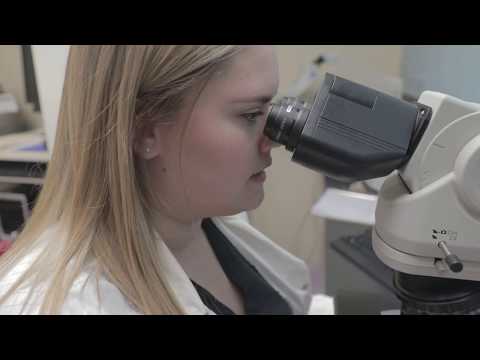Lucrative Job: Medical Laboratory Scientist – High Salary!

Medical Laboratory Scientist Job Description Template
Medical Laboratory Scientist Job Description A Medical Laboratory Scientist is a highly trained professional who performs a variety of complex laboratory tests and procedures to assist in the diagnosis, treatment, and prevention of diseases. They work in medical laboratories, hospitals, clinics, and research facilities. The responsibilities of a Medical Laboratory Scientist include collecting and analyzing samples, interpreting results, and ensuring the accuracy and reliability of laboratory tests. They use sophisticated laboratory equipment and techniques to identify and quantify substances within the samples, such as blood, urine, tissue, and other bodily fluids. In addition to conducting tests, Medical Laboratory Scientists are responsible for maintaining and calibrating laboratory equipment, monitoring inventory levels, and ensuring compliance with safety protocols and quality control standards. They also collaborate with healthcare professionals, such as doctors and nurses, to provide accurate and timely test results that aid in patient care. Attention to detail and critical thinking skills are essential for a Medical Laboratory Scientist as they need to accurately interpret and analyze test results, troubleshoot technical issues, and identify potential errors. They must also stay up-to-date with advancements in laboratory technology and research to provide the best possible patient care. Overall, Medical Laboratory Scientists play a crucial role in the healthcare system by providing vital information for the diagnosis and treatment of diseases, ultimately contributing to the well-being of patients.Medical Laboratory Scientist Responsibilities
Medical Laboratory Scientist Requirements
How Much Does A Medical Laboratory Scientist Make?
Medical Laboratory Scientist Salary
| Experience Level | Salary Range |
|---|---|
| Entry-level | $45,000 – $60,000 |
| Mid-career | $60,000 – $75,000 |
| Experienced | $75,000 – $90,000 |
| Senior | $90,000 – $110,000 |
A Medical Laboratory Scientist, also known as a Medical Technologist, plays a crucial role in the healthcare industry by performing laboratory tests and analyzing results. They work in hospitals, clinics, research facilities, and other healthcare settings.
The salary of a Medical Laboratory Scientist varies based on their experience level. Entry-level professionals can expect to earn between $45,000 and $60,000 per year. As they gain more experience and advance in their careers, their salary range increases. Mid-career Medical Laboratory Scientists can earn between $60,000 and $75,000, while experienced professionals can make between $75,000 and $90,000 annually. Senior Medical Laboratory Scientists with extensive experience and expertise can earn between $90,000 and $110,000 per year.
These salary ranges may vary depending on factors such as geographic location, level of education, certifications, and additional skills. It’s important to note that these figures are approximate and can be influenced by various factors.
Medical Laboratory Scientist Salaries by Country
Top Paying Countries for Medical Laboratory Scientist
| Country | Average Salary (USD) |
|---|---|
| United States | 70,000 |
| Australia | 65,000 |
| Switzerland | 60,000 |
| Netherlands | 55,000 |
| Canada | 50,000 |
Medical Laboratory Scientists are highly valued healthcare professionals who play a crucial role in diagnosing and preventing diseases. The salaries of these professionals vary significantly across countries. According to the data displayed in the table above, the top paying countries for Medical Laboratory Scientists are the United States, Australia, Switzerland, Netherlands, and Canada, with average salaries ranging from $50,000 to $70,000 per year. It’s important to note that these figures may vary depending on factors such as experience, qualifications, and the cost of living in each country.
A video on the topic Medical Laboratory Scientist
Video Source : UNMCEDUInterview Questions for Medical Laboratory Scientist
1. What is the role of a Medical Laboratory Scientist?
A Medical Laboratory Scientist performs various laboratory tests and analyzes body fluids, tissues, and cells to help diagnose, treat, and prevent diseases. They are responsible for operating and maintaining laboratory equipment, interpreting test results, and collaborating with healthcare professionals.
2. What are the necessary qualifications to become a Medical Laboratory Scientist?
To become a Medical Laboratory Scientist, one must have a bachelor’s degree in Medical Laboratory Science or a related field. Additionally, they need to complete a clinical internship or training program and pass a certification exam, such as the American Society for Clinical Pathology (ASCP) exam.
3. What technical skills are important for a Medical Laboratory Scientist?
Technical skills important for a Medical Laboratory Scientist include proficiency in operating and maintaining laboratory equipment, conducting various laboratory tests, analyzing and interpreting test results, and knowledge of laboratory safety protocols.
4. How do Medical Laboratory Scientists contribute to patient care?
Medical Laboratory Scientists play a crucial role in patient care by providing accurate and timely test results to healthcare professionals. These results help in diagnosing diseases, monitoring treatment effectiveness, and ensuring patient safety.
5. What challenges do Medical Laboratory Scientists face in their work?
Some challenges faced by Medical Laboratory Scientists include handling a large volume of samples, working under time constraints, maintaining accuracy and precision in test results, and adapting to technological advancements in laboratory equipment and procedures.
6. How do Medical Laboratory Scientists ensure quality control in their work?
Medical Laboratory Scientists ensure quality control by following standardized protocols, conducting regular calibration and maintenance of laboratory equipment, participating in proficiency testing programs, and adhering to strict quality assurance measures.
7. What is the importance of communication skills for a Medical Laboratory Scientist?
Communication skills are important for a Medical Laboratory Scientist as they need to effectively communicate with healthcare professionals to understand patient histories, discuss test requirements, and explain test results. They also need to document their procedures and findings accurately.
8. How do Medical Laboratory Scientists stay updated with advancements in their field?
Medical Laboratory Scientists stay updated with advancements in their field by attending conferences, workshops, and continuing education programs. They also read scientific journals, participate in online forums, and collaborate with colleagues to exchange knowledge and experiences.
9. What are some ethical considerations in the work of a Medical Laboratory Scientist?
Some ethical considerations in the work of a Medical Laboratory Scientist include maintaining patient confidentiality, ensuring informed consent for testing, practicing unbiased and non-discriminatory testing, and reporting any potential errors or quality issues in test results.
10. Can you describe a typical day in the life of a Medical Laboratory Scientist?
A typical day in the life of a Medical Laboratory Scientist involves receiving and organizing samples, performing various laboratory tests, analyzing test results, documenting findings, maintaining laboratory equipment, and collaborating with healthcare professionals to discuss patient cases and provide necessary information.






